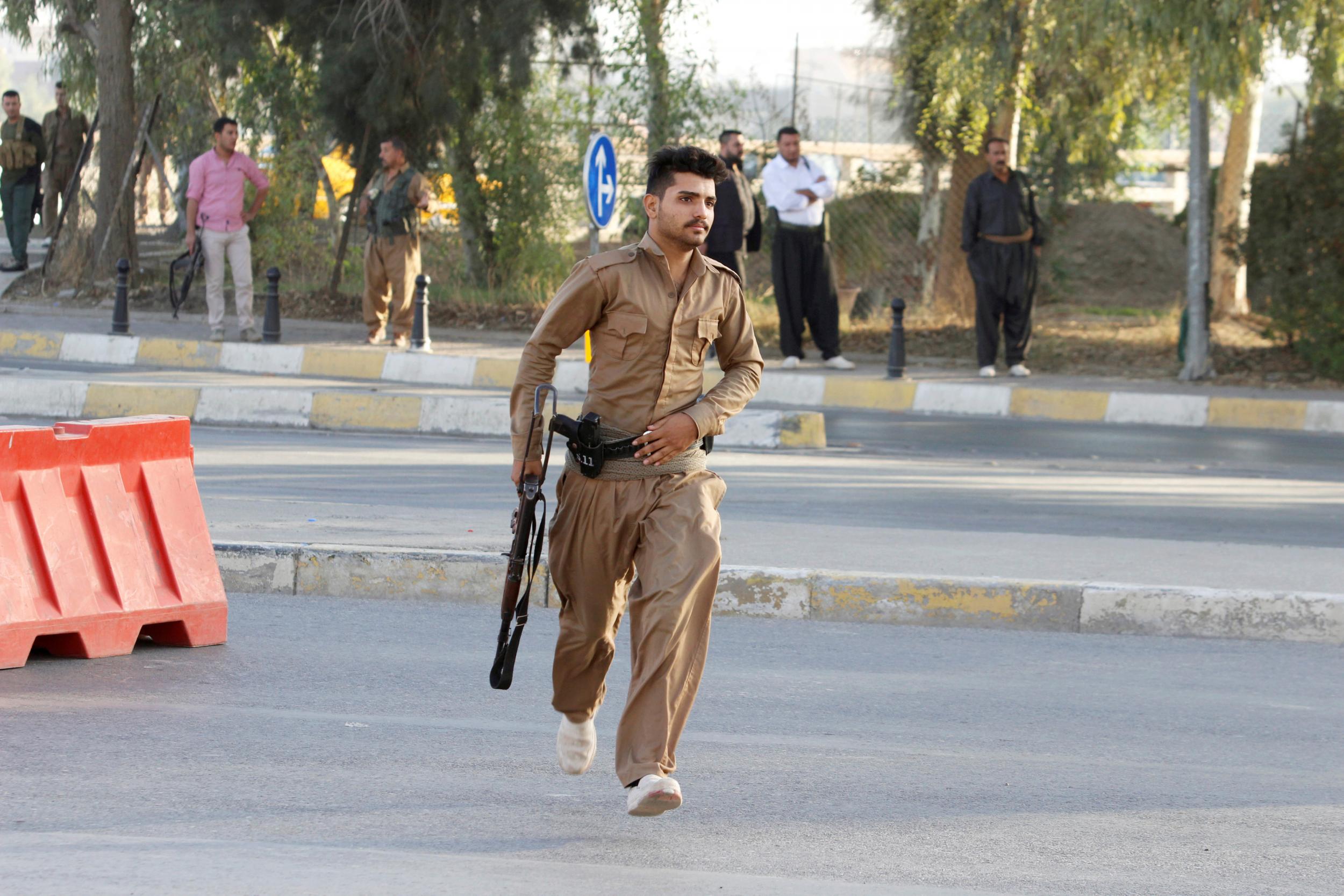Kurdish authorities 'drive hundreds of Arab families out of Iraqi city of Kirkuk in retaliation for Isis attack'
Kirkuk province officials have denied UN and rights group reports that displaced Sunni Iraqis living in Kurdish town have been expelled and their homes demolished in wake of recent Isis attack

Your support helps us to tell the story
From reproductive rights to climate change to Big Tech, The Independent is on the ground when the story is developing. Whether it's investigating the financials of Elon Musk's pro-Trump PAC or producing our latest documentary, 'The A Word', which shines a light on the American women fighting for reproductive rights, we know how important it is to parse out the facts from the messaging.
At such a critical moment in US history, we need reporters on the ground. Your donation allows us to keep sending journalists to speak to both sides of the story.
The Independent is trusted by Americans across the entire political spectrum. And unlike many other quality news outlets, we choose not to lock Americans out of our reporting and analysis with paywalls. We believe quality journalism should be available to everyone, paid for by those who can afford it.
Your support makes all the difference.Hundreds of Arab families living in the northern Iraqi city of Kirkuk have been driven out in what appears to be a retaliatory move by the Kurdish administrators in the aftermath of a fierce Isis attack on the city last month, Amnesty International has said.
The surprise pre-dawn Isis raid on October 21 was launched to distract from the huge US-backed coalition’s current operation to oust the militants from Mosul 60 miles (110 kilometres) away, lasting three days and leaving approximately 100 security forces personnel and civilians dead. Around 80 Isis fighters were killed in fighting, Governor Najmeddin Karim said.
Officials said at the time that Isis fighters were able to infiltrate the city by posing as Arab villagers displaced by fighting and seeking refuge in the Kurdish town.
As a result, on the 25 October Kirkuk’s administrators took the step of demolishing the homes of around 250 recently arrived Sunni Arab families and ordering them to leave for government camps, Amnesty claims. Another 190 families were said to have been removed from neighbouring villages by Kurdish Peshmerga and Asayesh forces.
Those removed were suspected of helping to shelter Isis fighters or providing intelligence for Isis to coordinate the attack.
Destroying homes without necessity amounted to “a war crime,” Amnesty’s deputy director for research in Lebanon Lynn Maalouf said.
“The authorities in Kirkuk are undeniably facing a serious security threat, but that cannot justify bulldozing people’s homes and forcibly displacing hundreds of Arab residents. Many of those affected are people who have already been forced to leave their homes because of the violence engulfing the country,” she said.
Kirkuk city officials have denied the reports as “an absolute lie.”
“First of all, we didn’t demolish them. I think people took it upon themselves, but we stopped it. Because we want to make sure that these people have a place to go to, we transferred them to the camps,” he told Al-Monitor.
Governor Karim added that the city could not continue to host internally displaced people (IDPs) “forever.”
“There are a lot of places that have been liberated [from Isis]... in Diyala province, in Salahuddin province, in Anbar. So these people need to go back their places. Saddam Hussein tried to wipe out Kurds from this city, and we are not going to have it done in the name of IDPs.“
Sectarian differences have long been used as a pretext for violence in modern Iraq.
How the complex and competing interests of the Kurdish peshmerga, Sunni tribal fighters, Shiite militias and Iraqi army troops currently battling for control of Mosul will play out when fighters manage to dislodge Isis from the Sunni-majority city is being widely viewed as a litmus test for the cohesiveness of the Iraqi state as a whole.
Join our commenting forum
Join thought-provoking conversations, follow other Independent readers and see their replies
Comments